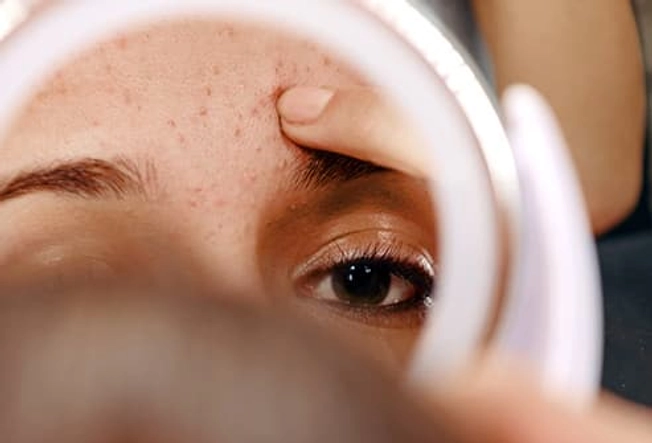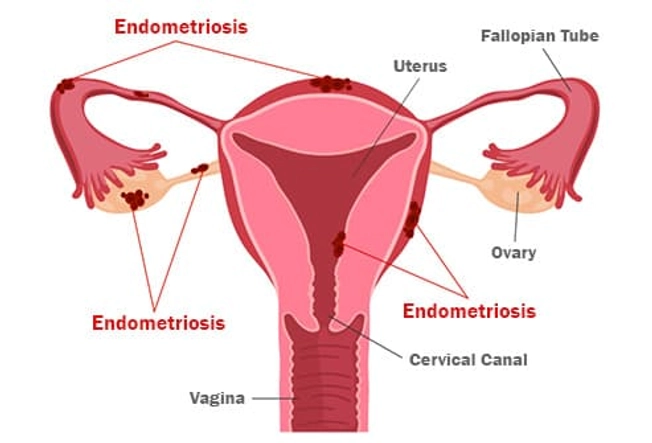- Overview
- Types
- Hormonal Methods
- Barrier Methods
- Behavioral Methods
- Medical Methods
- Male Birth Control
- Emergency Contraception
- Side Effects & Complications
- View Full Guide
Other Reasons to Use Birth Control


More Than Pregnancy Prevention
Hormonal birth control includes pills, patches, vaginal rings, and intrauterine devices (IUDs). Most have synthetic progesterone (progestin) and estrogen, but some are progestin-only. Hormonal contraception can help manage symptoms of some medical conditions and offer other health benefits. But they also come with risks and side effects. Talk to your doctor about the pros and cons of each method, including the over-the-counter birth control pill.

PMS and PMDD
About three-fourths of women get irritable, angry, or tense around their periods. This is known as PMS. About 8% of women have a severe version known as PMDD.
Your doctor may tell you to skip the week of sugar pills that usually come with birth control pills and start a new pack. Taking the hormone pills continuously will keep you from having a period -- and the changes that affect your mood.

Migraines
Many things can trigger these headaches, but changing levels of estrogen and progesterone could make them worse. You may get more migraines before or during your period, probably because of the drop in estrogen. Your doctor may suggest you keep taking your birth control pills so you don't get a period, or use a patch with estrogen during your period to hold that hormone level steady.

Painful Periods
Intense cramps could mean you have a condition called dysmenorrhea. The pain is caused by a chemical that forms in your uterus and triggers muscle contractions. Your doctor may recommend you take birth control pills or use the patch or ring to prevent the release of an egg, called ovulation. That way your uterus makes less of the pain-causing chemical, prostaglandin.

Acne
They're not designed to treat breakouts, but birth control pills do lower the level of "male" hormones your ovaries make that can lead to skin trouble. You’ll need to work with your doctor to find the pill with the right combination of drugs for you. It may be several weeks or months before you see results.

Irregular and Heavy Periods
Your menstrual cycle might come more or less than normal if you have hormonal imbalances, fibroids, or other medical conditions, and you may have heavy bleeding when you do have your period. Your doctor might suggest you take combined birth control or the progestin-only “minipill” to help regulate your cycle and lessen or stop your flow. It’s important to tell your doctor if you have irregular or heavy bleeding while on birth control. There are nonhormonal treatments or procedures to help manage these symptoms.

Endometriosis
This painful disorder happens when cells that look like the ones that normally line the inside of the uterus, called the endometrium, grow in other areas of the pelvic region, including your ovaries and bowel. Birth control pills affect this tissue outside the uterus in the same way as inside. They limit how much it builds up, so you'll hurt less.

PCOS
You can't cure polycystic ovary syndrome, but you can treat symptoms such as irregular or missed periods, acne, and excess hair growth. The hormones in birth control pills can help reset the imbalance of "male" and "female" hormones that causes these problems for women with the condition.

Other Health Benefits
Because birth control pills cut back on the amount of bleeding you have during your period, you may also be less likely to get anemia, or low levels of red blood cells. They've also been linked to lower rates of ovarian and uterine cancers.

Side Effects and Risks
Most women have no problems while taking birth control, but you could have irregular periods and mood and weight changes, especially during the first few months. Although less common, blood clots are possible, too. The pills have also been linked to higher risks of breast and cervical cancers. Talk to your doctor about the best form of birth control to address your concerns safely.
IMAGES PROVIDED BY:
1) Getty
2) Getty
3) Getty
4) Getty
5) Getty
6) Thinkstock
7) Thinkstock
8) Science Source
9) Getty
10) Getty
SOURCES:
Cleveland Clinic: “Heavy Menstrual Bleeding (Menorrhagia).”
American College of Obstetricians and Gynecologists: "ACOG Guidelines on Noncontraceptive Uses of Hormonal Contraceptives," “What You Should Know About Breakthrough Bleeding With Birth Control.”
American Society for Reproductive Medicine: "Fact Sheet: Noncontraceptive Benefits of Birth Control Pills."
UpToDate: "Patient information: Premenstrual syndrome (PMS) and premenstrual dysphoric disorder (PMDD) (Beyond the Basics)," "Patient information: Painful menstrual periods (dysmenorrhea) (Beyond the Basics)."
Mayo Clinic: "Headaches and hormones: What’s the connection?" "Endometriosis,"
U.S. National Library of Medicine: "Acne: Which birth control pill can help improve your complexion?" "Treatment options for heavy periods."
Endometriosis.org: "The Pill."
Office on Women's Health: "Polycystic ovary syndrome (PCOS) fact sheet."
National Institute of Child Health and Human Development: "Treatments to Relieve Symptoms of PCOS."
National Cancer Institute: "Oral Contraceptives and Cancer Risk."